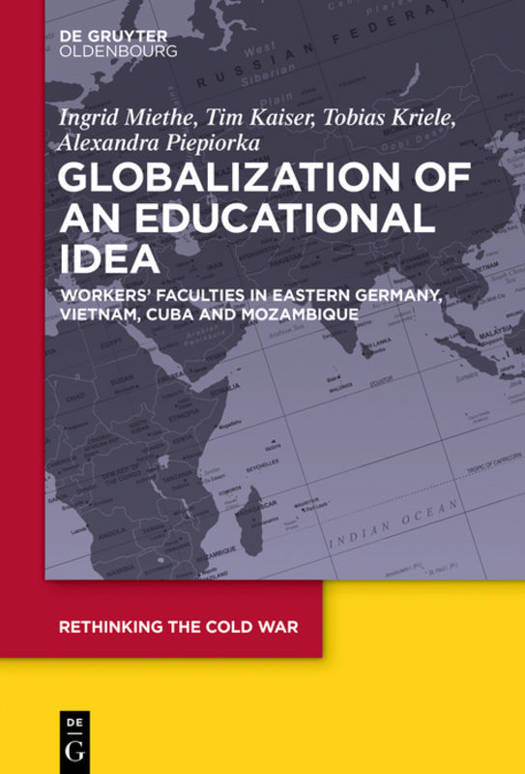
- Retrait gratuit dans votre magasin Club
- 7.000.000 titres dans notre catalogue
- Payer en toute sécurité
- Toujours un magasin près de chez vous
- Retrait gratuit dans votre magasin Club
- 7.000.0000 titres dans notre catalogue
- Payer en toute sécurité
- Toujours un magasin près de chez vous
Globalization of an Educational Idea
Workers' Faculties in Eastern Germany, Vietnam, Cuba and Mozambique
Ingrid Miethe, Tim Kaiser, Tobias Kriele, Alexandra PiepiorkaDescription
In this book, authors showcase the worldwide spread of Workers' Faculties as an example of both cooperation between socialist countries in education, and globalization processes in the field of education. Based on extensive research carried out in Cuban, German, Mozambican, and Vietnamese archives as well as expert interviews, it combines detailed case studies of educational transfers and policy implementation with a discussion of theoretical approaches to the study of globalization in and of education.
Research on Workers' Faculties provides an especially interesting example for the study of educational transfer between socialist countries as well as for the interplay of such transfers with processes of globalisation for two reasons. On one hand, the first Workers' Faculties were established already shortly after the October Revolution in Russia, and Workers' Faculties continue to exist in Cuba until today. A study of these institutions therefore provides a dynamic perspective covering the whole period of the existence of the socialist camp. On the other hand, the spread of the Workers' Faculty idea to four continents allows for an analysis that takes into account widely differing local contexts.
This book offers an analysis of general trends and particularities in the history of the global spread of the Workers' Faculty idea and its implementation in local contexts. Finally, it discusses the results with a view towards theories of globalization in the field of education as well as of specificities of processes of "socialist globalization".
Spécifications
Parties prenantes
- Auteur(s) :
- Editeur:
Contenu
- Nombre de pages :
- 402
- Langue:
- Anglais
- Collection :
- Tome:
- n° 7
Caractéristiques
- EAN:
- 9783110600612
- Date de parution :
- 22-07-19
- Format:
- Livre relié
- Format numérique:
- Genaaid
- Dimensions :
- 156 mm x 234 mm
- Poids :
- 793 g

Les avis
Nous publions uniquement les avis qui respectent les conditions requises. Consultez nos conditions pour les avis.






